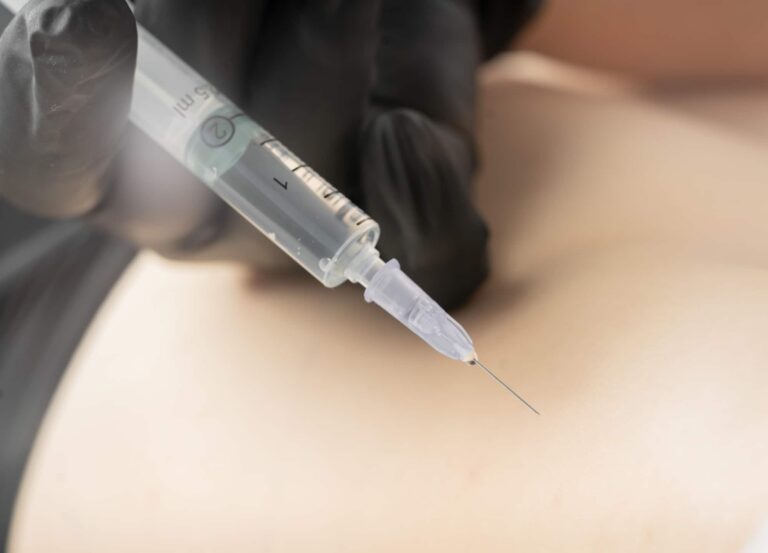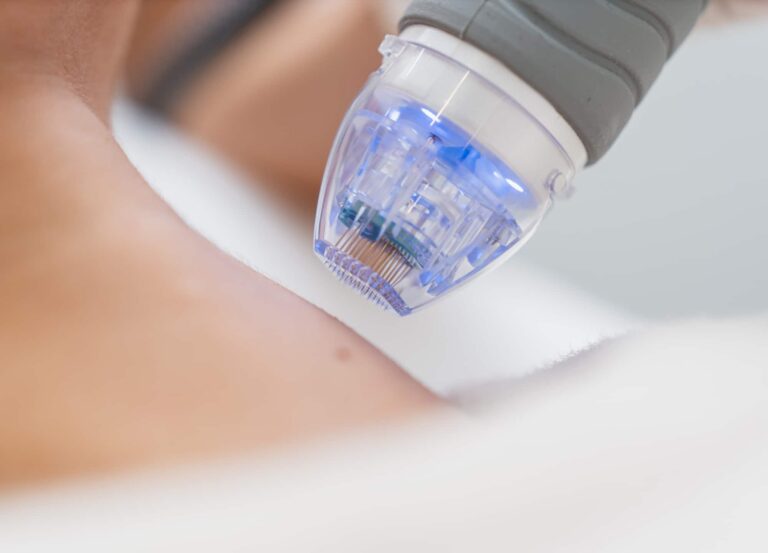When Mara Arvin, 33, decided she wanted liposuction in 2020, she booked an appointment for lipo 360 at New Life Plastic Surgery in Miami. “There was a specific doctor [there] I was referred to,” she recalls. He had treated a few people she knew, and she’d vetted him to the best of her abilities.
Arvin, a Realtor who’s based in Orlando, Florida, paid a $500 deposit ahead of the pre-operative tasks, such as blood tests, to hold the date for the procedure. After a four-hour drive to Miami and a few hiccups related to the pre-op appointment, she finally met her surgeon in person, three days before her procedure date. “The doctor was great,” she says. Afterward, she paid the surgical fee of $5,000 in full, bringing her grand total to $5,500.
The next day, as Arvin tells it, someone from the clinic called and canceled her appointment due to an emergency with the doctor and asked to reschedule. But rescheduling a surgical procedure isn’t so easy. “I say, ‘I’ve arranged childcare for my son, my hotel is booked, I’ve made arrangements to be off work—I can’t move it,’” recounts Arvin, who’s a single mom. “She said, ‘Okay, well, this [other] doctor can do it.’” That wasn’t an option for Arvin, who’d so thoroughly researched and trusted the surgeon she wanted. (He’s since left the clinic.)
After months of back-and-forth, Arvin finally tried to cancel the payment through her bank, at which point New Life Clinic pointed to the contract—which stated that they, indeed, could cancel a surgery. “It does say in the contract that they can cancel, but there was no medical reason to cancel,” she says. “I had been to Miami, booked the hotel—I had already incurred all of these costs.”
Withholding deposit refunds: a common bait-and-switch scheme
This sort of thing is happening all around the country, but cases seem to be clustered in Miami. There, the issue is well known. “Women will find their surgeons on Instagram, and they’ll see the results that they’re looking for—and they’ll want to specifically book with that surgeon,” says Andres Beregovich, a personal injury lawyer who focuses on plastic surgery malpractice. After putting down a deposit (or sometimes even paying the entire balance), shelling out for overnight stays, and arranging post-op care, they’re told that the surgeon they agreed to have surgery with is no longer available.
“When the patient says, ‘I’m sorry, but I don’t want to have surgery with surgeon Y; I contracted to have surgery with surgeon X,’ they’re not getting refunds,” says Beregovich, who likens it to a bait-and-switch scheme. “These surgery centers are making it look like the patients are the ones who are canceling, because of their very stringent cancellation policies.”
Let’s back up for a moment. In theory, a deposit makes sense: “With plastic surgery procedures, in addition to paying for the surgeon, you’re paying for an operating staff and for an anesthesiologist,” says Beverly Hills, California, board-certified plastic surgeon Dr. Kelly Killeen. “So if people have scheduled surgery and you cancel within a day of surgery, we may not be able to fill that day and everyone loses money.” So a deposit that ranges anywhere from 10% to 25% of the surgical fee is typical.
What is standard practice for plastic surgery deposits?
The standard practice is that the entire payment, deposit included, is refundable, so long as you cancel within a certain amount of time. Two practices RealSelf spoke with—one in Miami and one in Los Angeles—offer full refunds if patients cancel at least two weeks before the surgery date. “The refund is only lost if they have had a change of heart and did not notify us at least two weeks prior,” says Jessica Matos, the practice manager for Miami-based board-certified plastic surgeon Dr. Nirmal Nathan. “Conversely, if they notify us two weeks prior, they get their deposit back.”
Still, exceptions may be made. Even for last-minute cancellations, “we’re not going to keep money from someone who gets ill or who has something serious happen,” says Dr. Killeen. The same applies in cases where the patient’s expectations don’t align with the surgeon’s recommendations. “This can happen during a second or third consult presurgery,” says Matos. “In these cases, we also return their deposit—including any payments made toward surgery—regardless of the two-week-window policy.”
What gives these policies a potentially fraudulent feel is when changes to the plan on the part of the clinic, be it a different surgeon or date, become a pattern. And by the way, this is not at all standard practice. In fact, swapping surgeons is, in Dr. Killeen’s opinion, akin to malpractice. “You’re treating a surgeon like a Burger King drive-thru, where you drive up and order a meal, which is a surgery,” she says. “That’s not how it works.”
Plus, she adds, it’s of utmost importance for a patient to feel comfortable and confident with their surgeon, and swapping them out does not allow for that. And a new date for surgery also isn’t usually reason enough to withhold a deposit. “In any event that we cancel a surgery, the patient would receive a full refund,” says Matos.
But these large clinics are more of a revenue machine than smaller practices. Similar to rideshares and food delivery services, they contract with surgeons, who in turn “rent” the operating rooms. “When [they’re] marketing, let’s say, their one board-certified plastic surgeon, and everybody wants to go and see that plastic surgeon—well, that’s not helping the facility out because you have a whole bunch of other surgeons who are renting ORs,” Beregovich says. (This setup also makes it difficult to win a case for issues that may arise during surgery; for a case of alleged malpractice, the clinic can simply say that the doctor in question isn’t technically an employee, to dodge liability.)
How to get your plastic surgery deposit back
For some repeat offenders, their questionable practices have led consumer protection lawyers to bring the matter to the Florida attorney general’s office, which has in turn entered into what is called an ”assurance of voluntary compliance” with the clinics in question. These legal agreements mean that the clinics don’t have to admit that they’ve done anything wrong, but in exchange they have to agree to comply with the attorney general’s requirements going forward. In other words, Florida gets the clinics to agree to better behavior, while the clinics get to avoid the cost and risk of litigation and possible prosecution. Unfortunately, it doesn’t appear to be working. (The Florida attorney general’s office didn’t reply to requests for comment; nor did several Miami-based clinics contacted for this story.)
For the average person trying to recoup their deposit, litigation is often an effort in futility. “You need to prove that the surgery center acted in such a way that it unjustly enriched them—it’s a breach of contract,” says Beregovich. “A lot of the contracts are really ironclad in terms of their refund policy.”
But, he adds, that doesn’t speak to the possibility of “unjust enrichment” from a bait-and-switch tactic, which happens through no fault of the patient. For that, the patient and their lawyer have to prove that the surgery center committed these acts, which would entitle patients to their deposit—and proving their case is a challenge.
Meanwhile, clinics and their defense lawyers are typically happy to draw a case out. By the time they agree to a settlement down the line (if that even happens), the amount won often isn’t worth the time, effort, and expense of litigation.
This can make it incredibly hard to win money back—not to mention that it can be tough just to find representation. “To get an attorney to take a case like that for a measly—to them—$500, the expense is not worth it,” says Arvin. “The filing fee itself is $300 or $400.”
That’s the case for Beregovich, who doesn’t collect fees unless he wins—which, he says, isn’t a great business model. That’s why he’s looking into a class action lawsuit, which could net him a larger payout and hopefully bring about long-lasting change while compensating the patients. Until then, however, it’s buyer beware. As for Arvin, she’s still waiting on her liposuction. “Life has gotten in the way a little bit, but I do intend to do the procedure with the doctor I sought out to begin with,” she says.











